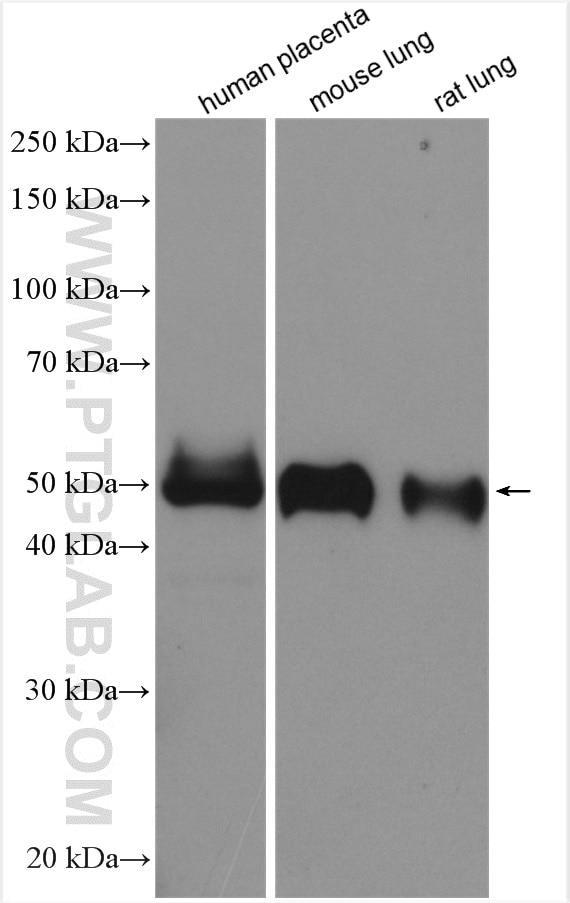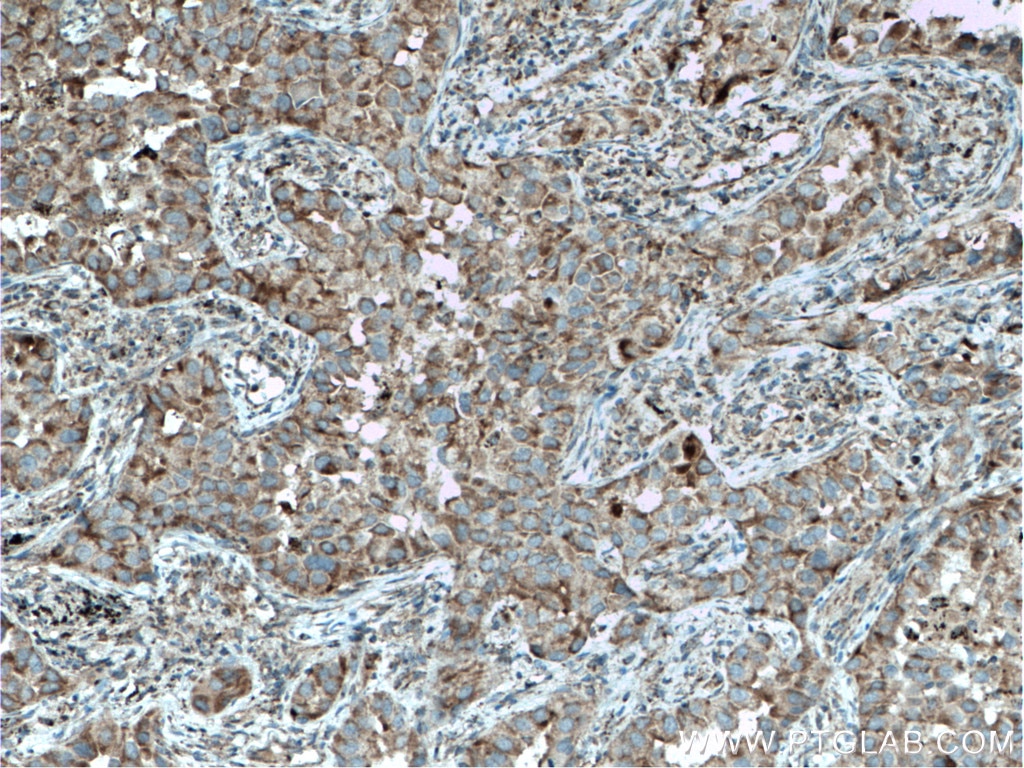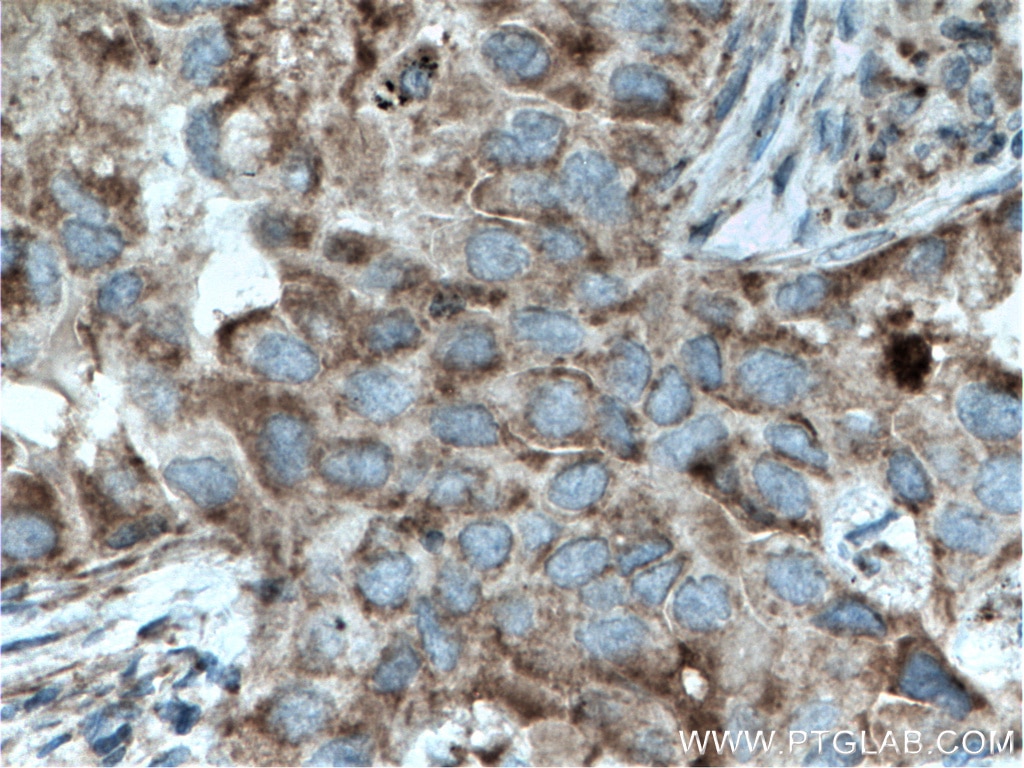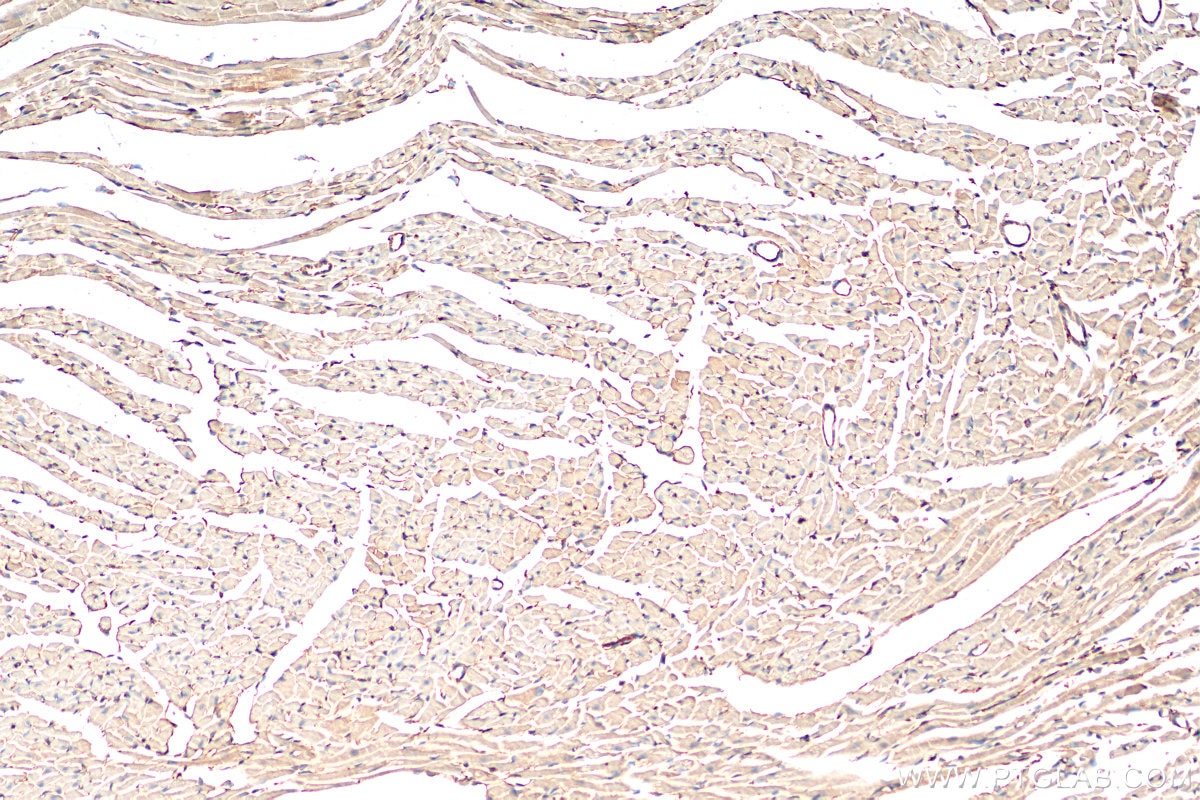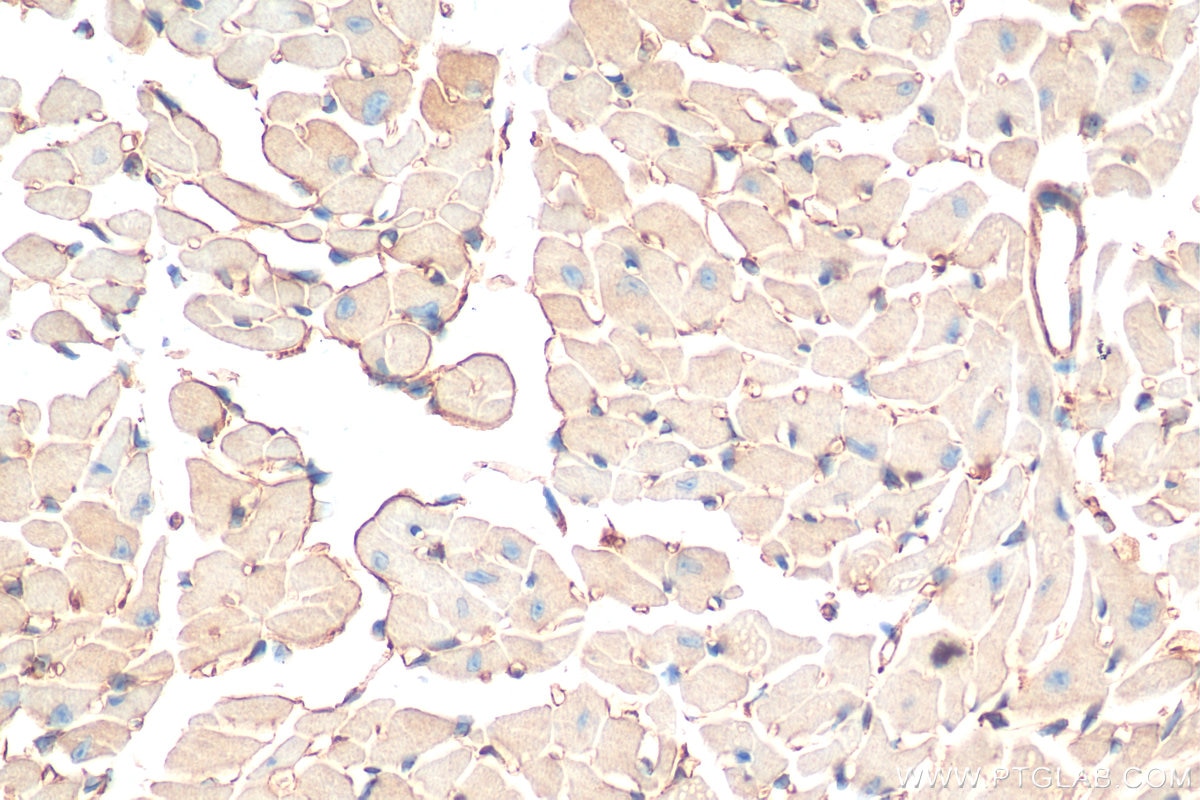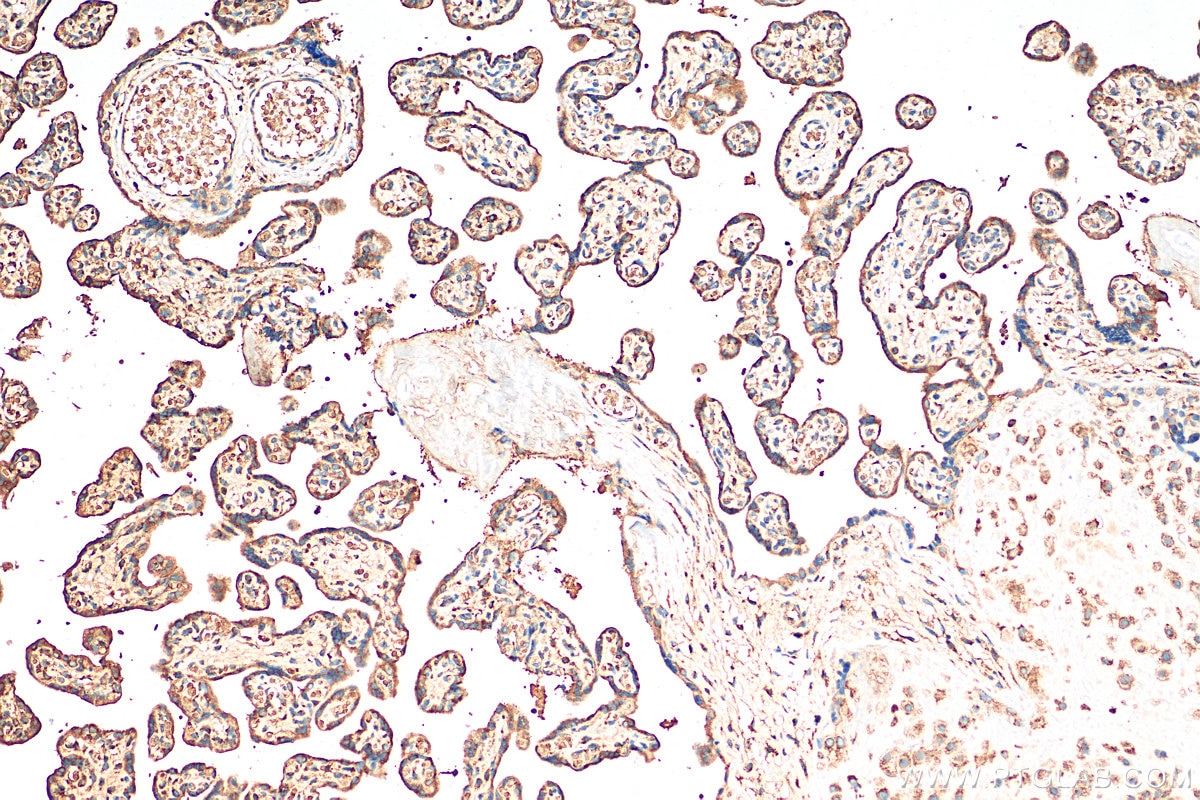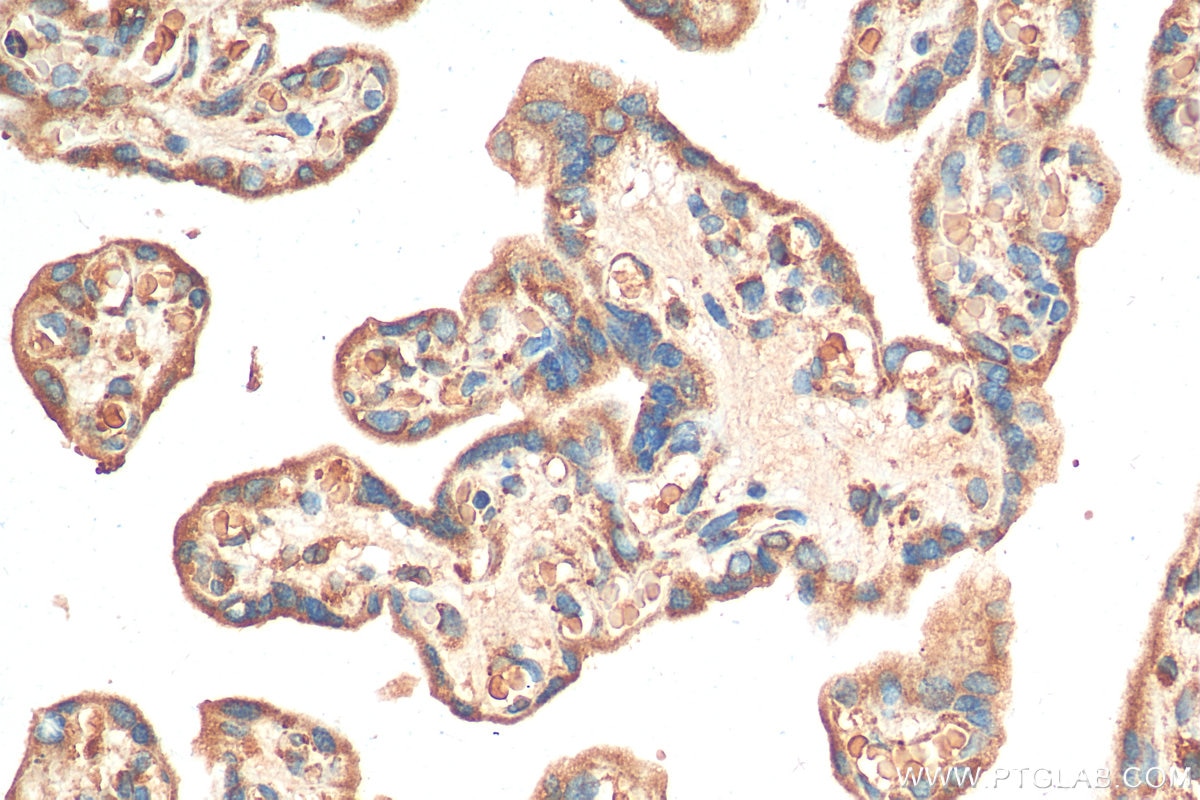Tested Applications
| Positive WB detected in | human placenta tissue, mouse lung tissue, rat lung tissue |
| Positive IHC detected in | mouse heart tissue, human lung cancer tissue, human placenta tissue Note: suggested antigen retrieval with TE buffer pH 9.0; (*) Alternatively, antigen retrieval may be performed with citrate buffer pH 6.0 |
Recommended dilution
| Application | Dilution |
|---|---|
| Western Blot (WB) | WB : 1:500-1:2000 |
| Immunohistochemistry (IHC) | IHC : 1:1000-1:4000 |
| It is recommended that this reagent should be titrated in each testing system to obtain optimal results. | |
| Sample-dependent, Check data in validation data gallery. | |
Published Applications
| KD/KO | See 1 publications below |
| WB | See 21 publications below |
| IHC | See 16 publications below |
| IF | See 15 publications below |
| IP | See 1 publications below |
| CoIP | See 1 publications below |
Product Information
11920-1-AP targets IL-1RL1/ST2 in WB, IHC, IF, IP, CoIP, ELISA applications and shows reactivity with human, mouse, rat samples.
| Tested Reactivity | human, mouse, rat |
| Cited Reactivity | human, mouse, rat |
| Host / Isotype | Rabbit / IgG |
| Class | Polyclonal |
| Type | Antibody |
| Immunogen |
CatNo: Ag2555 Product name: Recombinant human IL-1RL1 protein Source: e coli.-derived, PGEX-4T Tag: GST Domain: 4-328 aa of BC030975 Sequence: WILAILTILMYSTAAKFSKQSWGLENEALIVRCPRQGKPSYTVDWYYSQTNKSIPTQERNRVFASGQLLKFLPAAVADSGIYTCIVRSPTFNRTGYANVTIYKKQSDCNVPDYLMYSTVSGSEKNSKIYCPTIDLYNWTAPLEWFKNCQALQGSRYRAHKSFLVIDNVMTEDAGDYTCKFIHNENGANYSVTATRSFTVKDEQGFSLFPVIGAPAQNEIKEVEIGKNANLTCSACFGKGTQFLAAVLWQLNGTKITDFGEPRIQQEEGQNQSFSNGLACLDMVLRIADVKEEDLLLQYDCLALNLHGLRRHTVRLSRKNPSKECF Predict reactive species |
| Full Name | interleukin 1 receptor-like 1 |
| Calculated Molecular Weight | 63 kDa, 37 kDa, 30 kDa |
| Observed Molecular Weight | 50 kDa |
| GenBank Accession Number | BC030975 |
| Gene Symbol | IL1RL1 |
| Gene ID (NCBI) | 9173 |
| RRID | AB_906359 |
| Conjugate | Unconjugated |
| Form | Liquid |
| Purification Method | Antigen affinity purification |
| UNIPROT ID | Q01638 |
| Storage Buffer | PBS with 0.02% sodium azide and 50% glycerol, pH 7.3. |
| Storage Conditions | Store at -20°C. Stable for one year after shipment. Aliquoting is unnecessary for -20oC storage. 20ul sizes contain 0.1% BSA. |
Background Information
ST2, also known as IL1RL1, is a member of the IL-1 superfamily and serves as the receptor for IL-33. It plays a major role in immune and inflammatory responses. ST2 is expressed by various types of immune cells including Th2 cells, mast cells, type 2 innate lymphoid cells, eosinophils, basophils, NK cells, and non-immune cells, including cardiomyocytes. Two forms of ST2 exist: a membrane-bound form and a soluble form (sST2). The membrane-bound form activates the MyD88/NF-κB signaling pathway to enhance mast cell, Th2, regulatory T cell (Treg), and innate lymphoid cell type 2 functions. sST2 acts as a decoy receptor. (PMID: 27055914; 23999434; 28484466)
Protocols
| Product Specific Protocols | |
|---|---|
| IHC protocol for IL-1RL1/ST2 antibody 11920-1-AP | Download protocol |
| WB protocol for IL-1RL1/ST2 antibody 11920-1-AP | Download protocol |
| Standard Protocols | |
|---|---|
| Click here to view our Standard Protocols |
Publications
| Species | Application | Title |
|---|---|---|
Adv Healthc Mater Ultrasmall Nanoparticles Regulate Immune Microenvironment by Activating IL-33/ST2 to Alleviate Renal Ischemia-Reperfusion Injury | ||
Cell Commun Signal IL-33/ST2 antagonizes STING signal transduction via autophagy in response to acetaminophen-mediated toxicological immunity | ||
J Invest Dermatol Increased Type 2 Innate Lymphoid Cells in Patients with Drug Reaction with Eosinophilia and Systemic Symptoms Syndrome. | ||
Oncogene The reciprocal interaction between tumor cells and activated fibroblasts mediated by TNF-α/IL-33/ST2L signaling promotes gastric cancer metastasis. | ||
Am J Pathol Cross Talk between ST2 and Transforming Growth Factor-β Receptor Signaling Promotes Renal Fibrosis |

